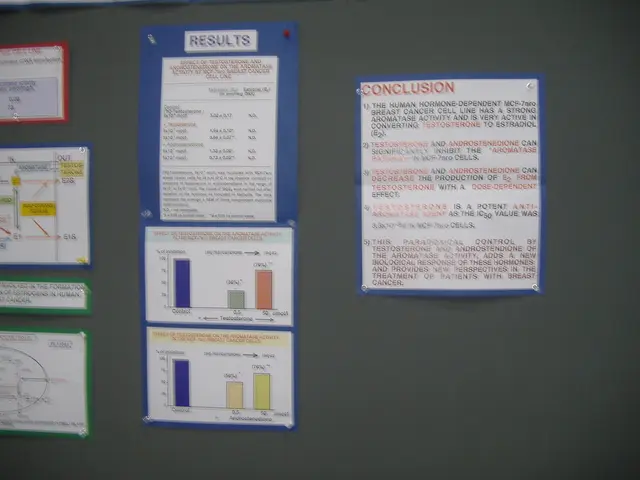Whammy Time: West Proposes Aggressive Economic Sanctions Against Russia
EU contemplates comprehensive trade sanctions against Russia
The talk among some political heavyweights is brewing up a new plan to give the Russian economy a major hit, surpassing all previous sanctions. According to anonymous diplomats, proposed actions against Moscow could entail tariffs on exports, ranging from mild to a full-blown trade embargo.
The architects of this ferocious strategy are none other than Senators Lindsey Graham (R-SC) and Richard Blumenthal (D-Conn.). They've crafted a bill, cleverly named the Sanctioning Russia Act of 2025, which, if passed, could impose primary and secondary sanctions on Russia. That's right, if Russia refuses to play ball in resolving the conflict with Ukraine, importers of Russian oil, gas, uranium, and more could face 500% tariffs.
While there's no official word from POTUS Donald Trump, Ukraine seems poised to push its own hefty sanctions package without needing Uncle Sam's assistance.
Meanwhile, in the Eurozone, ambassadors united on May 14 to unveil the 17th round of sanctions against Russia, reports Ursula von der Leyen, European Commission President. These sanctions will target 189 tankers considered part of Russia's "shadow fleet". Adding to the pain, Reuters reveals that in addition to ships, restrictions will apply to 30 companies trading in dual-use goods, and 75 physical and legal entities for their reported ties with Russia's military-industrial complex.
Europe's leaders have been mum on the matter, but they've made it clear: if Russia doesn't agree to a 30-day ceasefire in Ukraine, new sanctions are coming. According to Bloomberg sources, they're holding back on delivering a final blow until Russia and Ukraine have a sit-down in Istanbul.
Back in the Kremlin, sanctions have long been denounced as illegal and in violation of international law. Dmitry Peskov, Kremlin spokesman, reiterates that Russia has grown accustomed to sanctions, and threatening further restrictions is a waste of time. He goes on to say that Russia won't tolerate ultimatums.
Keep it lock-in and stay informed on the frontlines. Join our Telegram channel @expert_mag
- #USPolitics
- #EuropeanUnion
- #Sanctions
- #Russia
- #UkraineConflict
Enrichment Insights:
Comprehensive Overview of Sanctions Against Russia
The Sanctioning Russia Act of 2025
- Background: Introduced by Senators Lindsey Graham (R-SC) and Richard Blumenthal (D-Conn.) on April 1, 2025, the Sanctioning Russia Act of 2025 aims to impose severe economic sanctions on Russia if it fails to negotiate or violates a peace agreement with Ukraine.
- Key Provisions: The bill proposes 500% tariffs on imports from countries that purchase Russian oil, gas, uranium, or other goods under the secondary sanctions section. It's estimated to have substantial bipartisan support, with nearly 60 co-sponsors, but its progress through the legislative process is ongoing.
European Union's 17th Sanctions Package
- Update: On May 14, 2023, the European Union announced the 17th round of sanctions against Russia, targeting 189 tankers and imposing restrictions on 30 companies dealing in dual-use goods, as well as 75 physical and legal entities due to reported ties with Russia's military-industrial complex. The details of this package were found in various news reports but not from a direct EU statement.
- Background: This round of sanctions is a continuation of the EU's efforts to pressure Russia to negotiate a peace agreement in Ukraine through economic penalties, including restrictions on energy imports and financial transactions.
These two initiatives by the US Senate and the EU represent coordinated efforts to increase the pressure on Russia to end its conflict with Ukraine. The Sanctioning Russia Act of 2025 is in the legislative process, while the EU is escalating its sanctions with each new round.
The Sanctioning Russia Act of 2025, a bill introduced by Senators Lindsey Graham and Richard Blumenthal, seeks to impose significant economic sanctions on Russia, as part of the ongoing political efforts to address the Ukraine conflict. Meanwhile, the European Union, through policy-and-legislation, has announced the 17th round of sanctions against Russia, targeting various tankers, companies, and entities linked to Russia's military-industrial complex as part of the general-news headlines.








